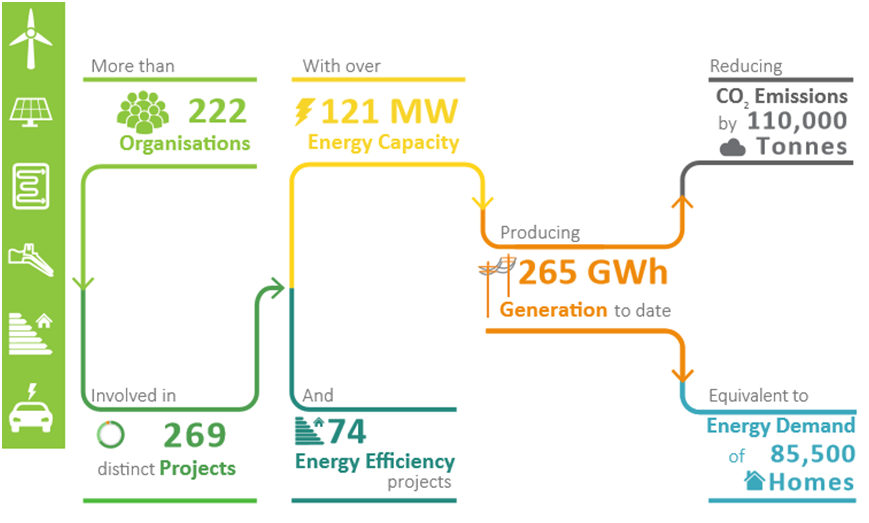By Dan Curtis, BHESCO
Earlier this year, Community Energy England produced the UK’s very first ‘State of the Sector‘ report, highlighting the emerging influence and importance of community owned energy in 2017.
The community energy movement has witnessed tremendous growth over recent years, now boasting 222 organisations throughout the country, which can collectively generate 121MW of clean renewable energy. That’s enough to power 85,500 homes, and has reduced carbon emissions by 110,000 tonnes since 2002.
The emergence of this new type of energy ownership and generation is in keeping with a wider transformation of our energy supply.
We are in the midst of a seismic shift in the way we use and consume energy. Developments like electric cars, smart grids, battery storage and demand response will make a huge difference to our relationship with energy by making it more local. Community groups are perfectly positioned to be at the vanguard of this revolution.
Their drive, commitment and local insight provide an ability to put into practice emerging market developments, while the trust associated with being community owned can be vital for encouraging the uptake of new technologies such as smart meters
In an era of increasing devolution, it is fundamental for communities to invest in initiatives that will improve resilience. As well as generating energy independently (and reducing transmission loss), community energy creates local jobs and keeps money in the local economy. A 2014 government strategy paper on the subject observed that:
“Putting communities in control of the energy they use can have wider benefits such as building stronger communities, creating local jobs, improving health and supporting local economic growth.”
The age when coal and nuclear power dominated the supply market is over. The gigantic power stations and reactors required to generate huge power outputs that travel for thousands of miles through the wires of the National Grid will soon be history. With access to affordable generation technologies like offshore wind and solar power, coupled with battery storage, heat pumps and a more efficient use of energy, we, as communities, are truly able for the first time to seize control of our energy future.
In countries like Germany, 35% of all renewable energy installations are community owned. Our future, here in the UK is also community owned.
Let’s work together to make this happen…we are stronger together.
Image from Community Energy England State of the Sector Report 2017

